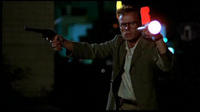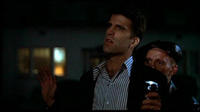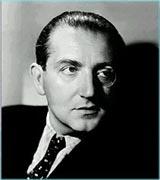 Pamela's Nite
Pamela's NiteElaborate Salad, Fresh Bread, Strawberry Cheesecake
Joseph Wambaugh Interview
"BRC: You've written four other nonfiction works and eleven works of fiction. Do you enjoy writing one more than the other?Update
JW: I enjoy doing the research of nonfiction; that gives me some pleasure being a detective again and doing investigation. When all is said and done, though, I'm not sure. When I look back I think maybe the novels contain more of my DNA, I carried them like a mother carries a child. I delivered them. The nonfiction story belongs to other people and doesn't carry much of my DNA. They're like foster children.
Except for THE ONION FIELD. That one got pretty close to me because I was a cop when it happened. I saw some of the indifference that my police department showed to the surviving officer. I was just a young cop when he was fired from the department as a thief and a crook. I found out he was shoplifting and I started asking questions back then. People described his shoplifting. I wasn't a writer then --- or maybe I was a writer but didn't know it --- but I said, wait a minute, this sorta sounds like guilt crying out for punishment. Something is going on here. I felt like a part of that one. It felt more like a novel to me than nonfiction.
BRC: Without question, THE ONION FIELD has become a literary classic. Was that book the pivotal moment when you knew you had to make a choice between writing and police work?
JW: I wrote two fiction novels before I wrote THE ONION FIELD, but I was still a cop. When I wrote THE ONION FIELD, I realized that my first two novels were just practice. THE ONION FIELD made me a real writer. And then I knew it was over, I couldn't be a cop anymore."
June 13, 2005 'The Onion Field' Killer Busted for Heroin
Jimmy Lee Smith, who served 19 years in prison for the kidnapping of two Los Angeles police officers and the murder of one of them in "The Onion Field" case of 1963, may be headed back to prison for possession of heroin while on parole.
LINK










